And a little slate that came out of the wall that you could actually write on. And a door that locked from the outside.
AL KOOPERMusically Bob [Dylan] is a primitive. He’s not a Gershwin, or somebody that uses eloquent music terms.
More Al Kooper Quotes
-





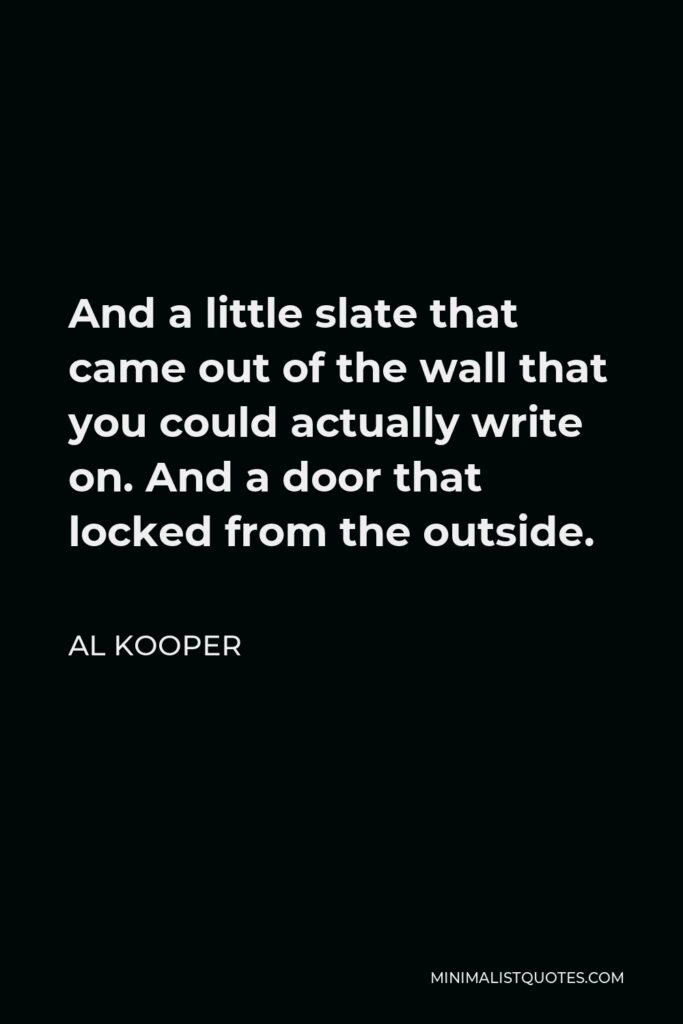

-





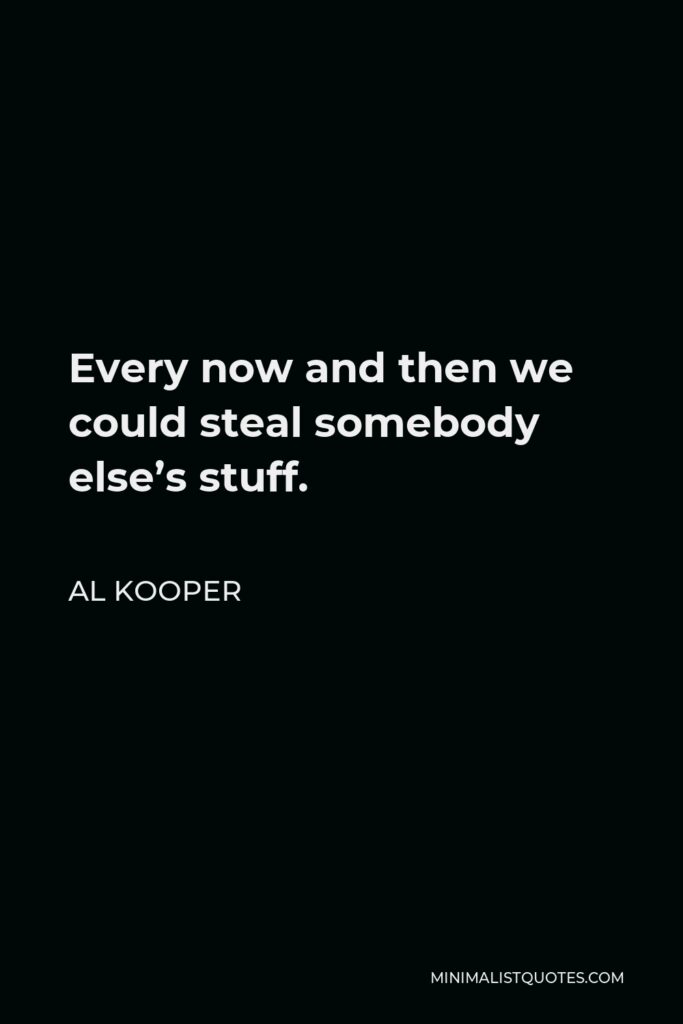

Every now and then we could steal somebody else’s stuff.
AL KOOPER -







Producing Bob Dylan was pretty much a spectator sport.
AL KOOPER -





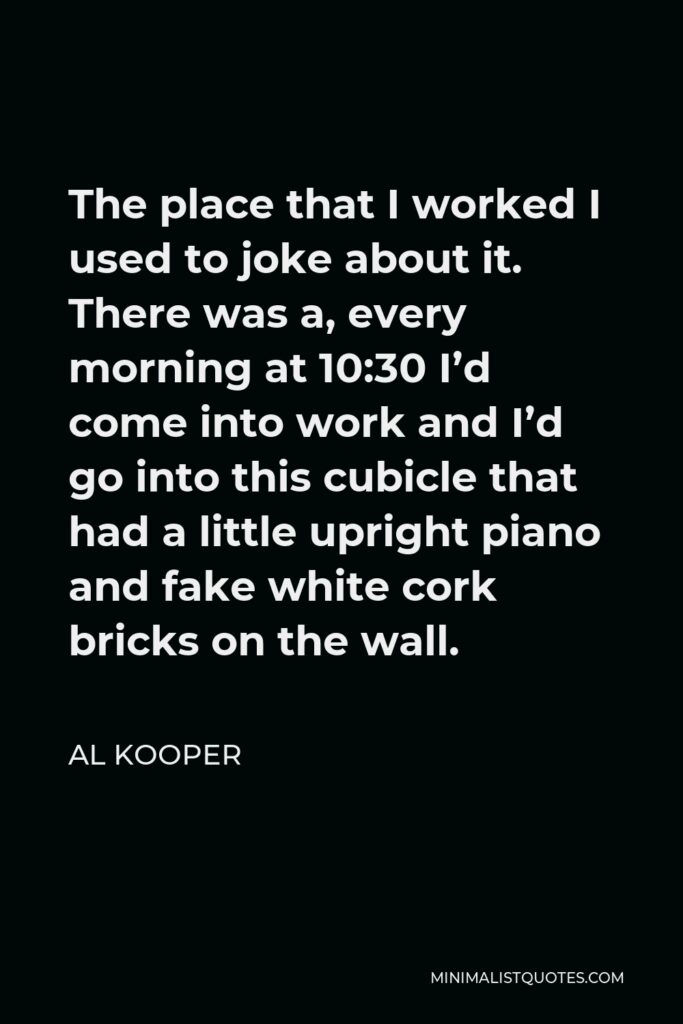

The place that I worked I used to joke about it. There was a, every morning at 10:30 I’d come into work and I’d go into this cubicle that had a little upright piano and fake white cork bricks on the wall.
AL KOOPER -





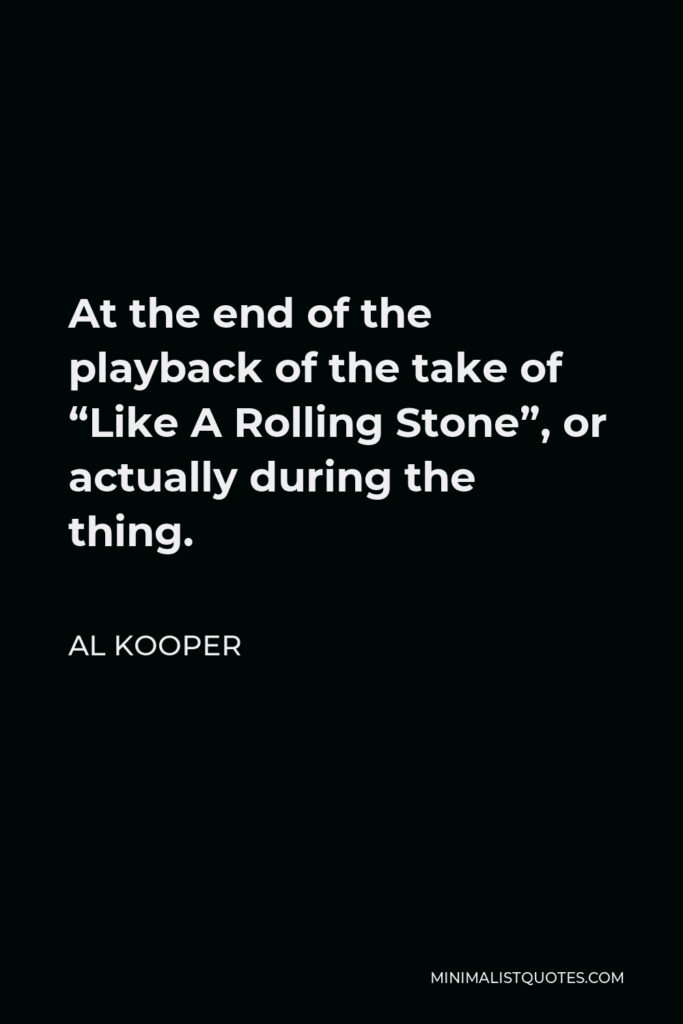

At the end of the playback of the take of “Like A Rolling Stone”, or actually during the thing.
AL KOOPER -







Bob Dylan said to the producer, turn up the organ. And Tom Wilson said, oh man, that guy’s not an organ player. And Dylan said.
AL KOOPER -





![Al Kooper Quote - I think it was Columbia politics, Columbia Records politics that, that, Tom Wilson left [Bob Dylan] after “Like A Rolling Stone”.](https://minimalistquotes.com/wp-content/uploads/2022/07/i-think-it-was-columbia-politics-columbia-records--683x1024.jpg)

I think it was Columbia politics, Columbia Records politics that, that, Tom Wilson left [Bob Dylan] after “Like A Rolling Stone”.
AL KOOPER -





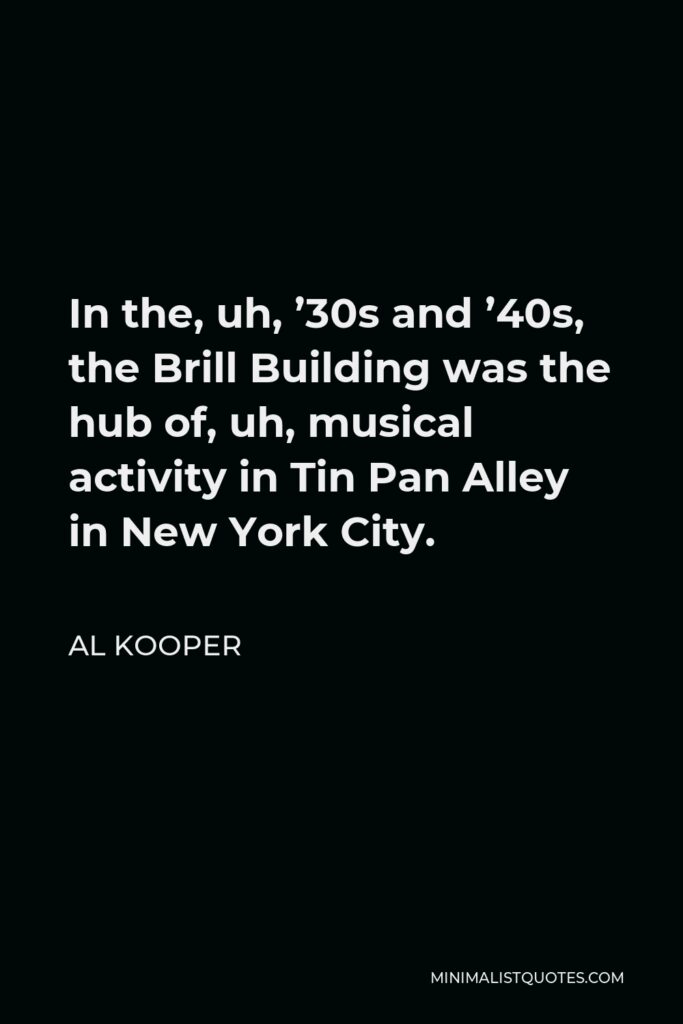

In the, uh, ’30s and ’40s, the Brill Building was the hub of, uh, musical activity in Tin Pan Alley in New York City.
AL KOOPER -





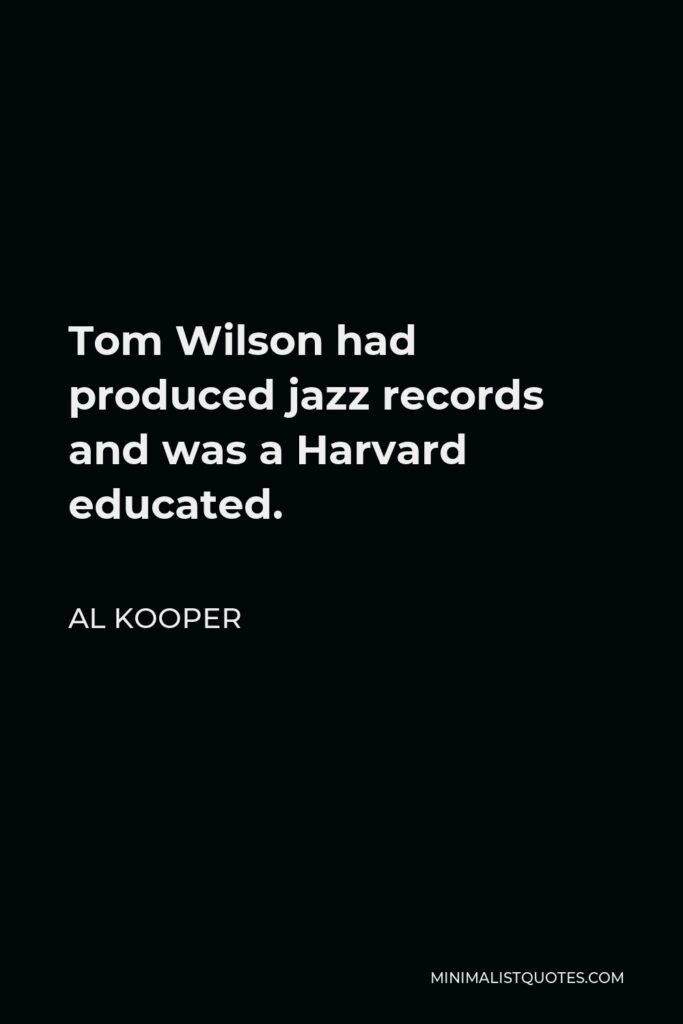

Tom Wilson had produced jazz records and was a Harvard educated.
AL KOOPER -





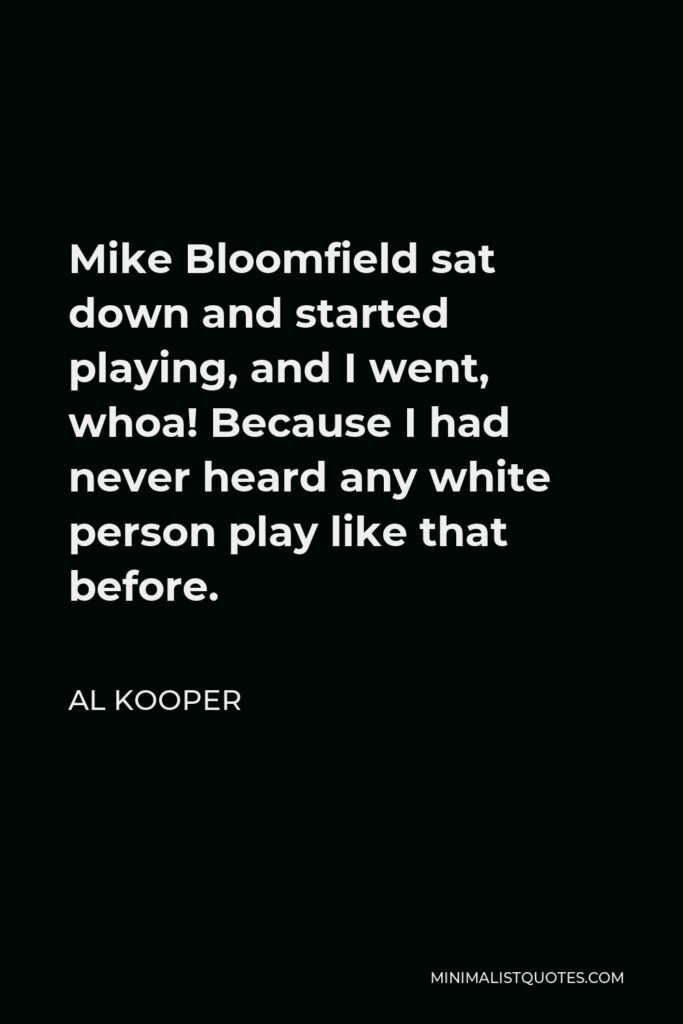

Mike Bloomfield sat down and started playing, and I went, whoa! Because I had never heard any white person play like that before.
AL KOOPER -





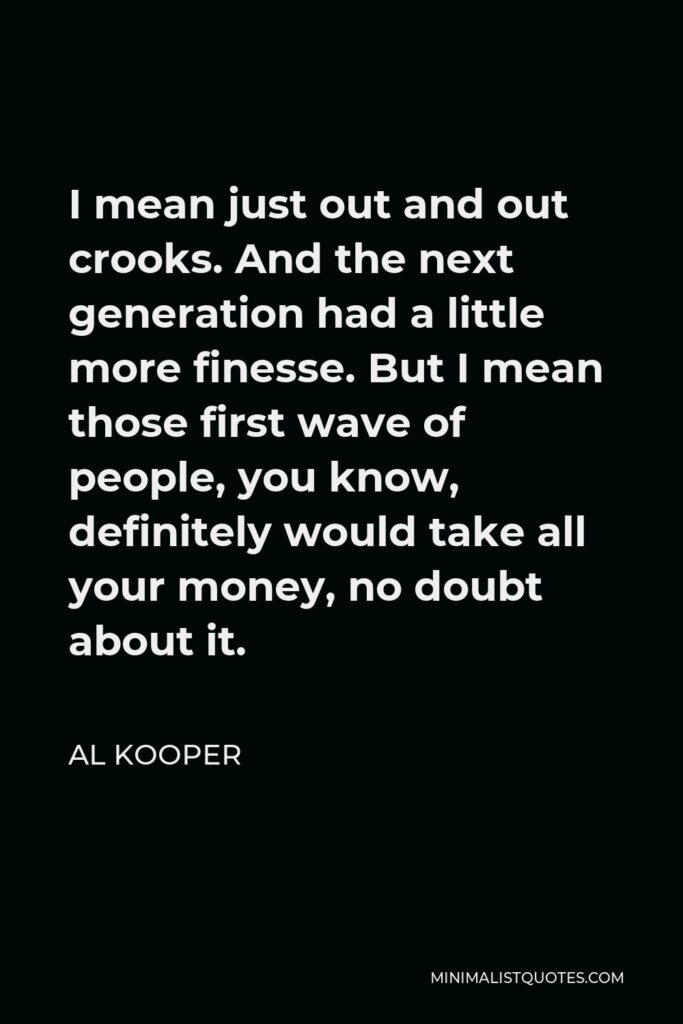

I mean just out and out crooks. And the next generation had a little more finesse. But I mean those first wave of people, you know, definitely would take all your money, no doubt about it.
AL KOOPER -





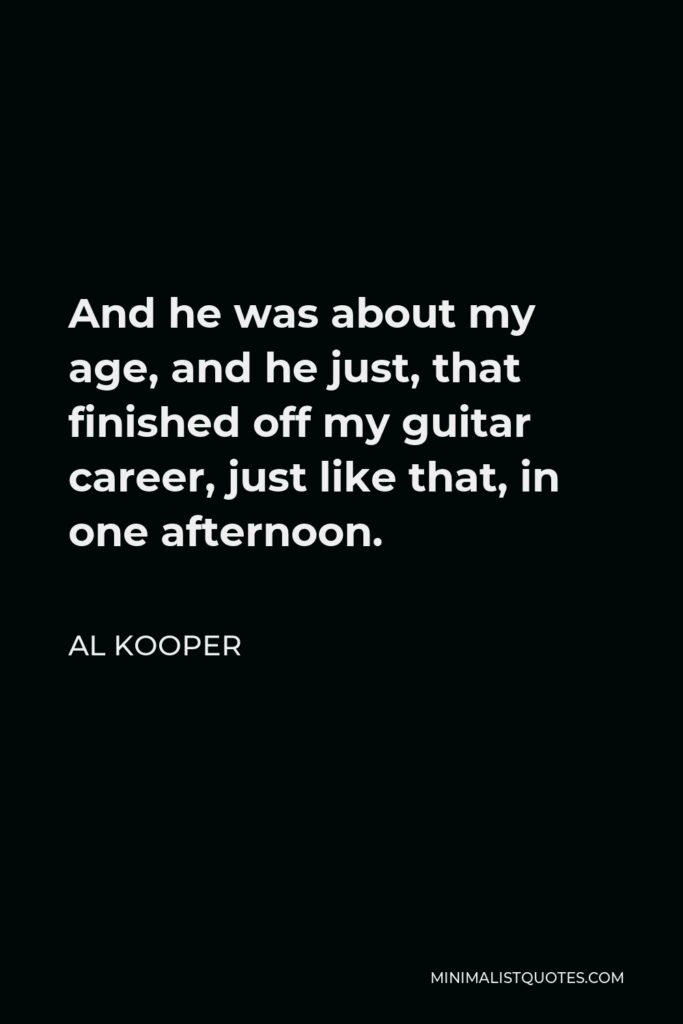

And he was about my age, and he just, that finished off my guitar career, just like that, in one afternoon.
AL KOOPER -







My influences were mostly gospel. So I was playing my twisted Jewish equivalent of gospel music over his twisted equivalent of rock and roll music. And it was a very excellent marriage.
AL KOOPER -







I believe Irving Berlin was there, and uh, and everything just centered around there.
AL KOOPER -





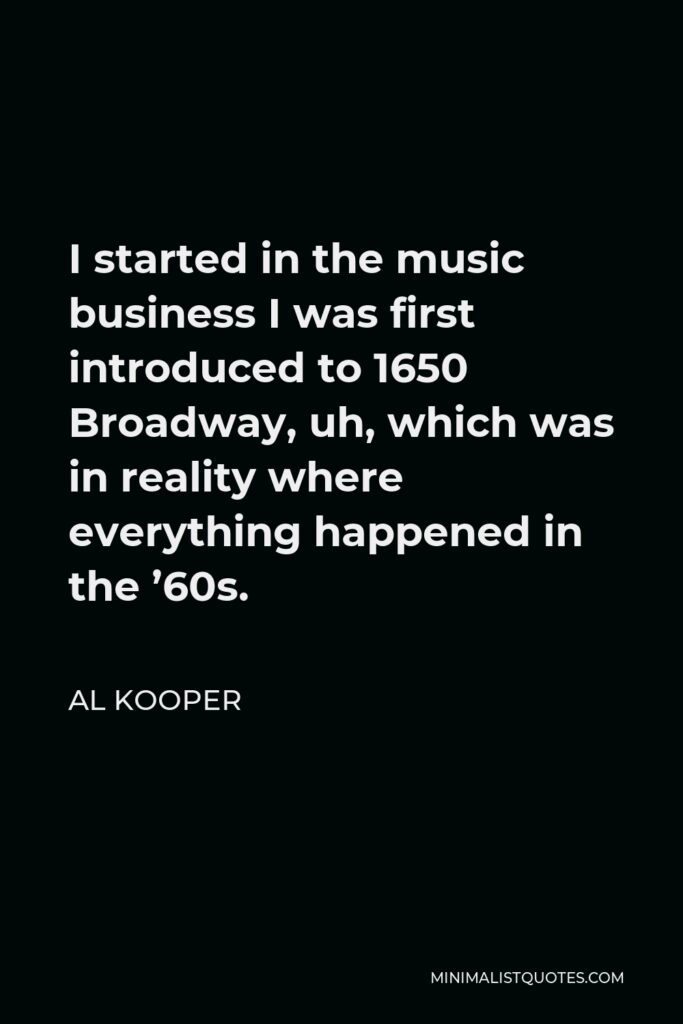

I started in the music business I was first introduced to 1650 Broadway, uh, which was in reality where everything happened in the ’60s.
AL KOOPER -





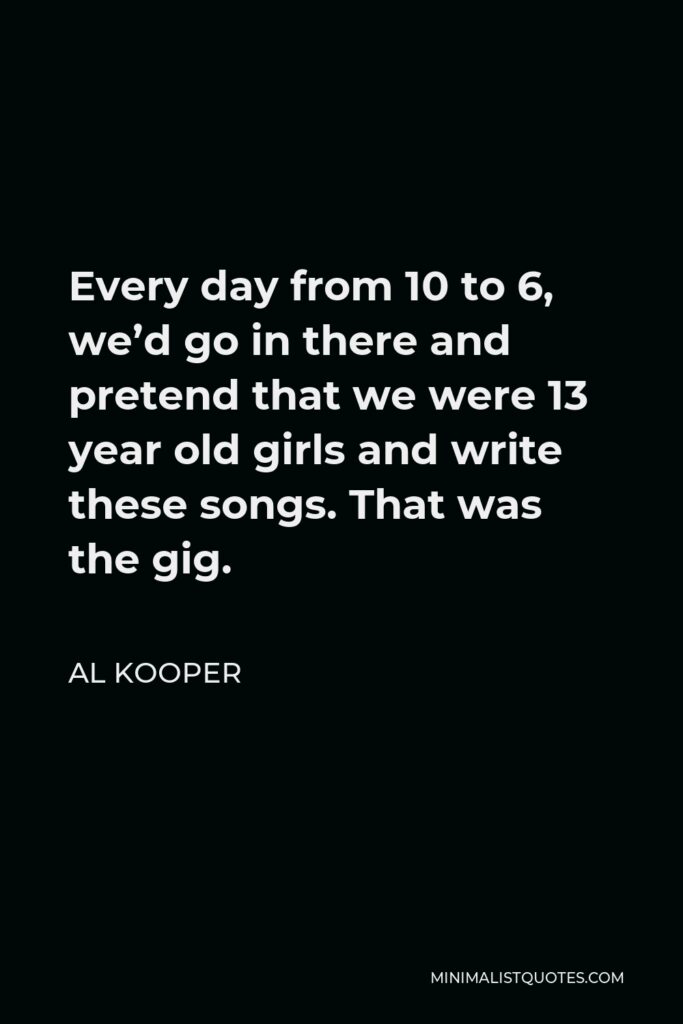

Every day from 10 to 6, we’d go in there and pretend that we were 13 year old girls and write these songs. That was the gig.
AL KOOPER
![Al Kooper Quote - Musically Bob [Dylan] is a primitive. He’s not a Gershwin, or somebody that uses eloquent music terms.](https://minimalistquotes.com/wp-content/uploads/2022/07/musically-bob-dylan-is-a-primitive-hes-not-a-gersh.jpg)
![Al Kooper Quote - Musically Bob [Dylan] is a primitive. He’s not a Gershwin, or somebody that uses eloquent music terms.](https://minimalistquotes.com/images/grey-musically-bob-dylan-is-a-primitive-hes-n.jpg)
![Al Kooper Quote - Musically Bob [Dylan] is a primitive. He’s not a Gershwin, or somebody that uses eloquent music terms.](https://minimalistquotes.com/images/blue-musically-bob-dylan-is-a-primitive-hes-n.jpg)
![Al Kooper Quote - Musically Bob [Dylan] is a primitive. He’s not a Gershwin, or somebody that uses eloquent music terms.](https://minimalistquotes.com/images/red-musically-bob-dylan-is-a-primitive-hes-n.jpg)
![Al Kooper Quote - Musically Bob [Dylan] is a primitive. He’s not a Gershwin, or somebody that uses eloquent music terms.](https://minimalistquotes.com/images/brown-musically-bob-dylan-is-a-primitive-hes-n.jpg)
![Al Kooper Quote - Musically Bob [Dylan] is a primitive. He’s not a Gershwin, or somebody that uses eloquent music terms.](https://minimalistquotes.com/images/white-musically-bob-dylan-is-a-primitive-hes-n.jpg)

